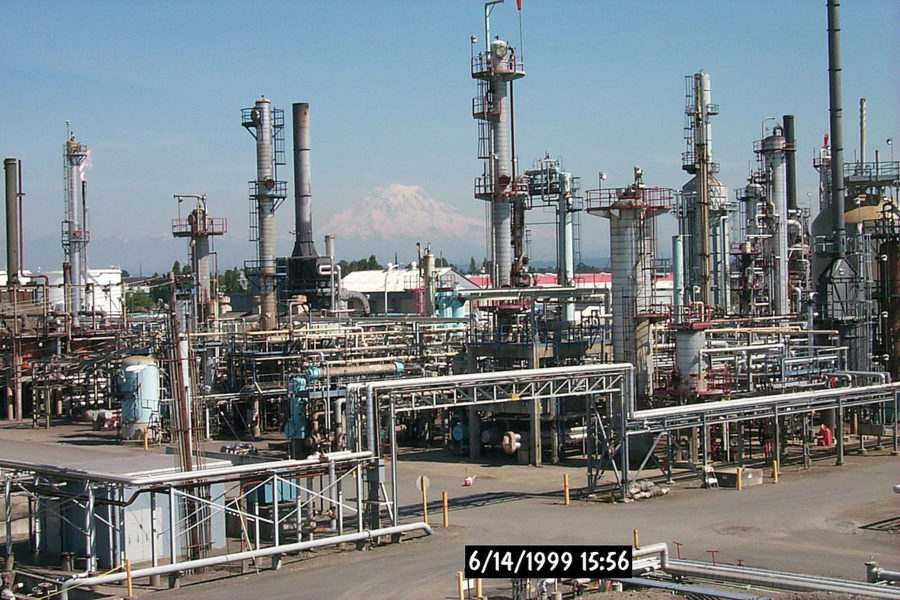If any doubt remained that Tacoma is ground zero for the Northwest’s fight over dirty energy, the recent purchase of a refinery on the city’s industrial port lays any question to rest.
US Oil began operating the refinery on Tacoma’s industrial port in the 1950s, but on November 28, 2018, its owners sold the facility to a company called Par Pacific Holdings for $340 million. The Houston-based company has made clear its intention to increase oil shipping on the Salish Sea, a move that could increase spill risks and likely further harm vulnerable populations of orcas and other wildlife.
The sale includes the refinery, the 107-car rail loop for handling oil trains, a proprietary pipeline to McChord Air Force Base, and contracted capacity on the Trans Mountain Pipeline in Canada. It also includes a marine terminal in Tacoma that the new owners have worrisome designs on.
On the same day, the firm announced its Tacoma purchase its executives gave a presentation to Par Pacific’s investors, making sure to highlight that their new Tacoma marine property, “provides blue water access, enabling the import and export of Canadian and Alaskan crude.” (Blue water access refers to ocean shipping.) In addition to exporting oil to foreign shores, they boasted that the Tacoma dock will also allow the company to “opportunistically supply our Hawaii operations with inland crude,” presumably referring to Par Pacific’s refinery on Oahu.
Whether for export or shipment to Hawaii, it looks certain that Par Pacific will aim to increase crude oil shipping out of Tacoma’s port.
The Tacoma refinery gets 64 percent of its oil from the Bakken shale formation in North Dakota, largely delivered by rail, and 33 percent from the Cold Lake region of Alberta, Canada, delivered primarily by way of the Trans Mountain Pipeline. Oil from that pipeline reaches Tacoma by way of a Burnaby, BC, terminal from whence it is barged south down Puget Sound. Par Pacific, which touts “an active, opportunistic growth strategy,” is planning to use trucks to supply 33 Cenex retail gas stations that it owns in Idaho and Washington.
The Obama Administration in 2015 lifted a longstanding ban on US crude oil exports, causing a variety of industry players to scramble to profit off the move by shipping American oil abroad. More vessel traffic in the Salish Sea is never good news for the imperiled orca pods or their ecosystem. Expert analysis indicates that spill risks are likely to increase, perhaps by a lot, and yet no one seems to know how much damage a spill might do—or what it might cost.
The refinery sale comes hard on the heels of a unanimous November 14 vote by the Tacoma City Council to renew a moratorium on new fossil fuel infrastructure in the city’s industrial port area, known as the Tideflats. By a 3-6 vote, however, the council declined to expand the moratorium to existing fossil fuel facilities, including the refinery, which means that the new Texas owners could ramp up oil shipments out of Tacoma without restraint.


Comments are closed.